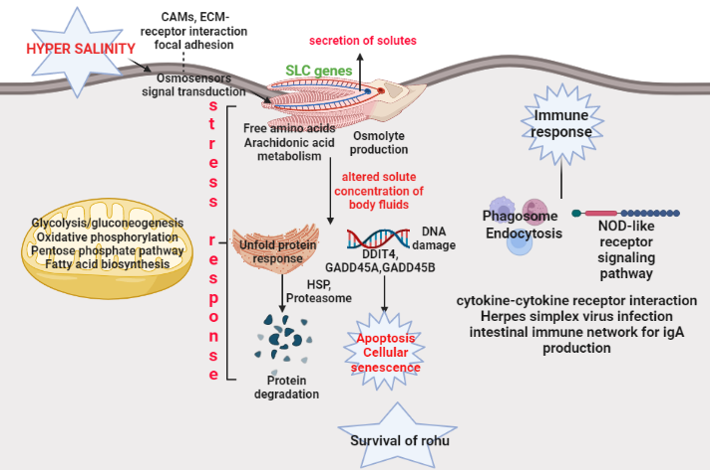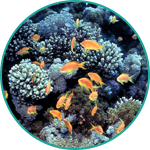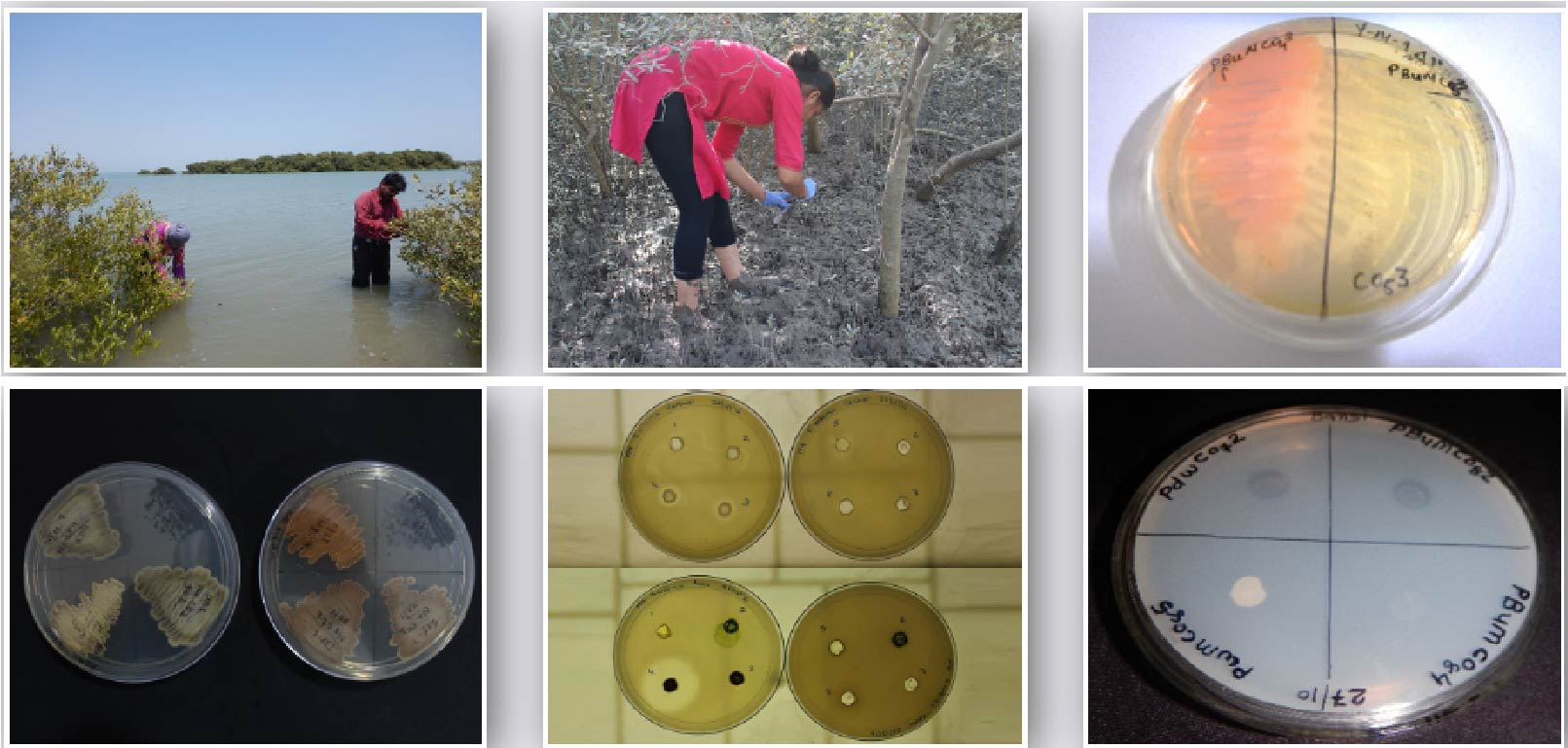Research Areas
Marine Biotechnology
Ongoing Projects
Genomic Selection of Elite, High Yielding Fish Varieties for Seed Improvement in Aquaculture

Labeo rohita is a well-known freshwater species in India. The concern of increasing salinity concentration in freshwater bodies due to climate change may greatly impact the aquatic environment. Gills are one of the important osmoregulatory organs and have direct contact with external environment. Hence, the current study is conducted to understand the gill transcriptomic response of L. rohita under hypersalinity environment.
Completed Projects
Genomic studies of coral reefs in Gulf of Kachchh

Coral is the hard, stony skeleton secreted by certain marine polyps (class Anthozoa) and often deposited in extensive masses forming reefs and atolls in tropical seas. Coral reefs support the highest marine biodiversity in our oceans and they are home to more than 25% of all marine life. They protect coastlines from the damaging effects of wave action and tropical storms. They are the source of nitrogen and other essential nutrients for marine food chains, help with nutrient recycling and assist in carbon and nitrogen fixing.
Corals are critically endangered species and have more than 85% contribution to build the coral reefs that supports world’s most diverse ecosystem. Studies on whole genome sequence of dominant scleractinian coral species (Goniopora planulata) in a particular region can access the complete database of the genes and their control regions that can be a powerful tool to gain insights into the fundamental cellular processes responsible forenhanced stress tolerance, coral health and adaptation.
Bioprospecting of Mangroves

Mangroves are one of the most important part of Marine Ecosystems and are Breeding grounds and nursery for many of the important marine organisms. Mangroves are an important source for various compounds having varied bioactivity and their medical properties have been of importance in folklore. Bio-activity of the extracts of the various parts of Mangrove plants was checked against various human pathogens.
Mangroves are the plants that are adapted to intertidal zones and are subjected to highly variable physicochemical conditions of salinity, flooding, light, temperature and nutrient, which give rise to the high bacterial diversity that characterizes mangrove ecosystems. These are diverse microbial communities with halophilic and alkalophilic properties. Marine bacteria and Actinomycetes are potent source of enzymes like Laccase (A lignolytic enzyme with wide applications in Waste Water treatment, Dye degradation, Paper industry etc.) Phytase (A potent Phytic acid solubilizing enzyme important in the Animal Feed industry) and L-Asparaginase (An Anti-cancer enzyme).


